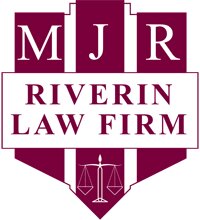Best Agriculture Lawyers in Canada
Share your needs with us, get contacted by law firms.
Free. Takes 2 min.
Or refine your search by selecting a city:
List of the best lawyers in Canada
About Agriculture Law in Canada
Agriculture plays a crucial role in Canada's economy, contributing significantly to the country's GDP. With diverse climatic regions, Canada supports a wide range of agricultural activities, including crop production, livestock farming, dairy, and fisheries. Canada's agriculture sector is governed by federal, provincial, and territorial laws and regulations. These laws cover areas such as land use, environmental protection, food safety, trade, and labor relations to ensure sustainable and efficient agricultural practices.
Why You May Need a Lawyer
Legal advice may be necessary in a variety of situations within the agricultural sector. For instance, if you're involved in land disputes, challenges in complying with environmental regulations, labor issues, or need help with drafting and reviewing contracts with suppliers, distributors, or partners. Other scenarios include setting up an agricultural business, navigating import/export regulations, food safety compliance, and understanding subsidy and grant opportunities.
Local Laws Overview
Canadian agriculture is regulated through a mix of federal and provincial laws. Key federal legislation includes the Agriculture and Agri-Food Administrative Monetary Penalties Act, the Canada Grain Act, and the Pest Control Products Act. Each province also has its own set of rules concerning land use and agricultural operations, addressing issues like zoning, water rights, and environmental impact assessments. Legal frameworks focus on promoting sustainable agriculture, fair market practices, and safety standards, in addition to fostering innovation and competitiveness in the agricultural industry.
Frequently Asked Questions
What is the process to resolve agricultural land disputes in Canada?
Land disputes can be resolved through negotiation, mediation, arbitration, or litigation. Consulting an agricultural lawyer can help determine the best approach based on the specifics of the case.
Do I need a lawyer to draft a farming lease agreement?
While it is possible to draft a lease agreement without a lawyer, it is recommended to seek legal assistance to ensure all terms are clear, enforceable, and comply with relevant laws.
What should I know about farm labor laws in Canada?
Farm labor laws address wages, working conditions, and safety. These regulations may vary by province, so familiarizing yourself with local employment standards is crucial.
How do I ensure compliance with environmental regulations?
Adhering to federal and provincial guidelines on pesticide use, waste management, and emissions is essential. Consulting with an environmental lawyer can help ensure compliance and avoid penalties.
What are the rules for importing agricultural products into Canada?
Importing agricultural products requires compliance with the Safe Food for Canadians Act, customs duties, and import permits. An agricultural lawyer can assist with navigating these regulations.
Where can I access government grants for agriculture?
Grants are available through various federal and provincial programs. Check with Agriculture and Agri-Food Canada (AAFC) and provincial ministries for specific opportunities.
What should I consider when entering a joint venture in agriculture?
Important considerations include the partnership structure, financial contributions, profit sharing, and exit strategies. Legal counsel can ensure agreements align with your interests.
Are there specific rules for organic farming in Canada?
Organic farming is regulated under the Organic Products Regulations, which require certification and compliance with established standards. Legal assistance can guide you through certification processes.
How can I protect my intellectual property in agriculture?
Intellectual property can include plant varieties and farming innovations. Legal expertise can assist in securing patents, trademarks, and copyrights.
What are the legal considerations for exporting agricultural products?
Exporting involves compliance with international trade laws, customs regulations, and receiving country standards. Legal advice can help navigate these complex requirements.
Additional Resources
For more information, consider connecting with Agriculture and Agri-Food Canada (AAFC), the Canadian Food Inspection Agency (CFIA), and provincial agricultural departments. Organizations such as the Canadian Federation of Agriculture (CFA) and Farm Management Canada can also offer valuable insights.
Next Steps
If you require legal assistance in agriculture, start by identifying your specific needs and seeking out law firms or attorneys with expertise in agricultural law. Consider initial consultations to discuss your situation and understand potential legal strategies. Additionally, utilize resources such as local bar associations to find qualified professionals who can support your case.
Lawzana helps you find the best lawyers and law firms in Canada through a curated and pre-screened list of qualified legal professionals. Our platform offers rankings and detailed profiles of attorneys and law firms, allowing you to compare based on practice areas, including Agriculture, experience, and client feedback.
Each profile includes a description of the firm's areas of practice, client reviews, team members and partners, year of establishment, spoken languages, office locations, contact information, social media presence, and any published articles or resources. Most firms on our platform speak English and are experienced in both local and international legal matters.
Get a quote from top-rated law firms in Canada — quickly, securely, and without unnecessary hassle.
Disclaimer:
The information provided on this page is for general informational purposes only and does not constitute legal advice. While we strive to ensure the accuracy and relevance of the content, legal information may change over time, and interpretations of the law can vary. You should always consult with a qualified legal professional for advice specific to your situation.
We disclaim all liability for actions taken or not taken based on the content of this page. If you believe any information is incorrect or outdated, please contact us, and we will review and update it where appropriate.
Browse agriculture law firms by city in Canada
Refine your search by selecting a city.














